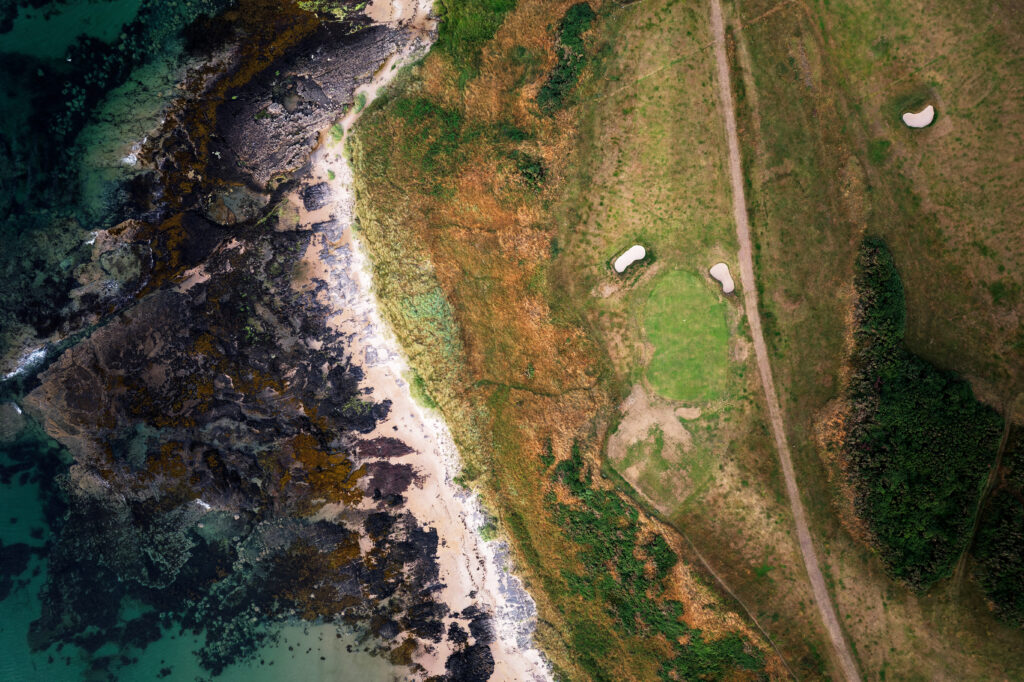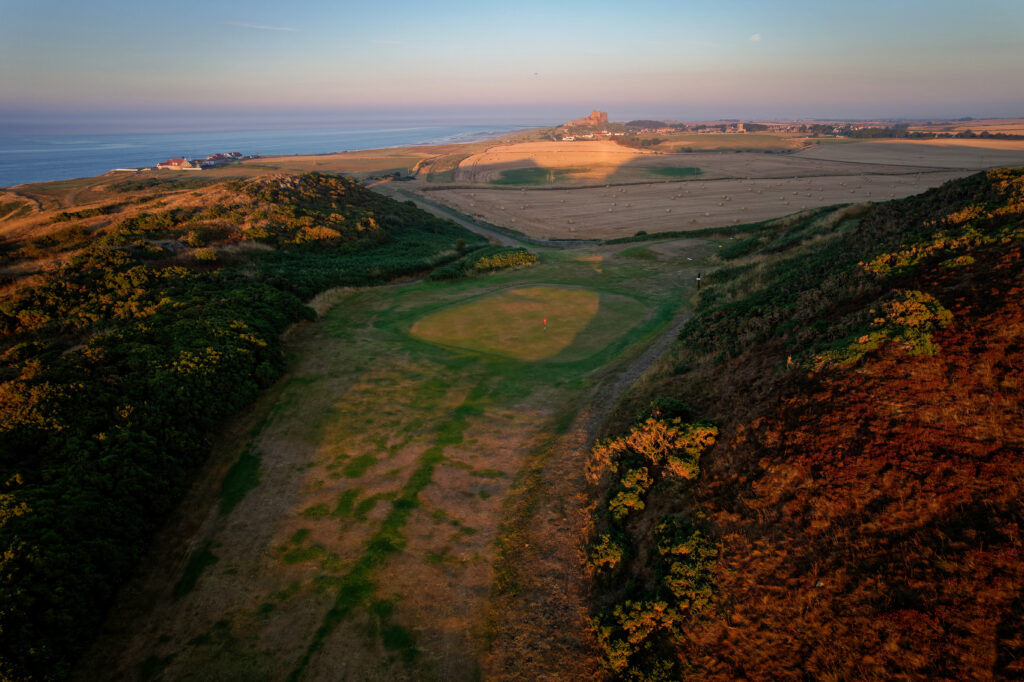
Keeping golf courses in pristine shape throughout the year is inherently unsustainable – and golfers need to embrace a landscape that changes with the seasons.
That’s the view of England Golf’s Sustainability Manager Owen James, who believes a change of mindset will not only make life easier for clubs, allowing them to meet their sustainability goals and save the precious time of greenkeepers, but also increase variety and fun for the golfer.
Indeed, few club players understand the amount of resources required to maintain a golf course, and James believes embracing different conditions could be vital to the future of the sport.
“Five or so years ago, it was a bit of a race to the bottom,” he told BGL.
“The amount of chemical being applied was increasing, as was the price. Greenkeepers were being pushed to get greens running high on the stimp-meter, manicuring fairways within an inch of their life, and the long-term impacts are noticeable. We were punishing the soils to a point where they are no longer conducive to growing healthy turf grasses.”
But it’s not just expectation of course presentation that James feels needs an adjustment.
“The expectation of being able to play golf 365 days a year has really driven the [sustainability] conversation to happen faster,” he said.
“For me, there needs to be a realistic outlook from the club golfer.
“There is a disconnect, for me: the member expects golf all year round and that is the most unsustainable thing that can happen.”
Global heating has made our seasons much less reliable and predictable, with wetter winters and scorching summers, and the effect on golf courses has been hard to ignore.
In the height of summer, it is difficult to keep a course from succumbing to drought and browning off, and many club players see this as a problem – or a even failure on the part of the club. James disagrees.
“Brown fairways can be seen as a positive,” he said.

“It’s all about mindset. I’ve stood on a tee in July and it feels like I am playing a different golf course. You have to play different shots that you can’t play in the winter. And I don’t think that’s stressed enough at club level or embraced by golfers.
“I think we’re in this area where the 365-day game is going to be boring and setting up the course differently throughout the year should be seen as a selling point.
“It is all about the communication and the clubs that do it right will certainly benefit.”
It is hard to argue with him – and who doesn’t love watching hard fairways add 50 yards to your tee shots? Courses that strive to stay green throughout the year, however, should look at the economic impact.
“The financial side needs to be addressed with members,” James said.
“Explain to the membership that they can have a new fairway irrigation system, but in order to get that in place and also the water to make it possible, it’s going to cost many thousands of pounds and the members will foot that bill through higher fees.
“All of a sudden the membership sinks.
“Does it actually make that much difference to your enjoyment of the game, playing off a harder fairway? It makes the ball bounce differently and you end up in positions you don’t normally get into. For me, that’s interesting and positive.”
James believes a return to golf courses being one with nature – as they were originally intended to be – is key to improving the sport’s sustainability.
He said: “The tagline for the Open this year is ‘golf is forged by nature’ and it is one of my favourite phrases.
“It’s something many of us have forgotten. The best golf courses are the ones that blend in to the local environment, where it’s hard to tell there’s a course there unless you’re actually playing it.
“And in summer when you have fields and landscapes that are brown, and the golf course is bright emerald green, it doesn’t look natural. It isn’t right or normal.
“Why are we dictating the conditions in which we play? In most other sports, the conditions lead the way, so why is golf different? It is all a change of mindset.”
Sustainability is key to the survival of golf, and Booth Golf & Leisure is committed to help secure the sport’s future. It is time for everyone to embrace the changes that are necessary. If you would like to book a consultation with us to find out if we can provide you with sustainable water sources and much more, please call us on 01706 530 930. Stay tuned for more interviews with Owen.
